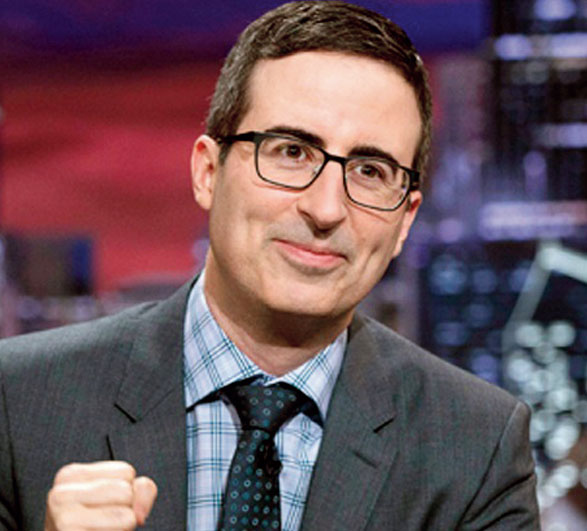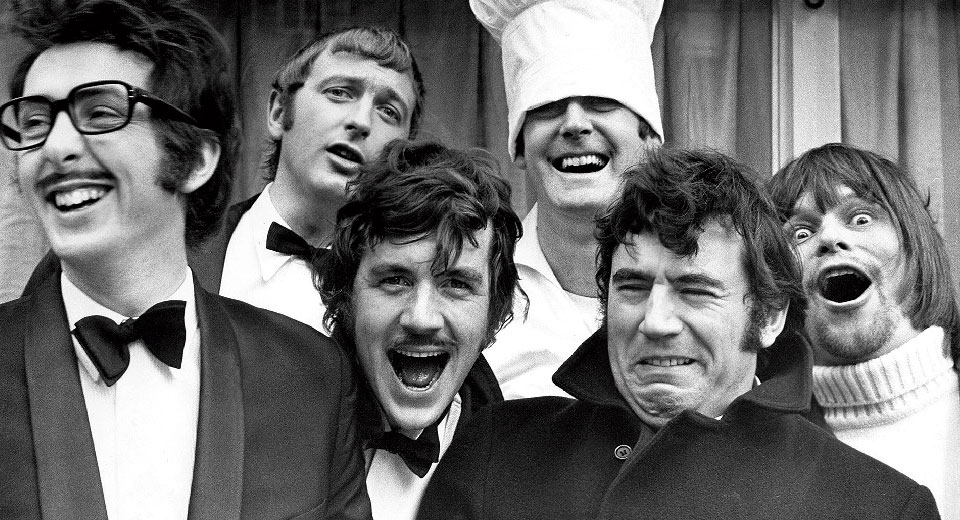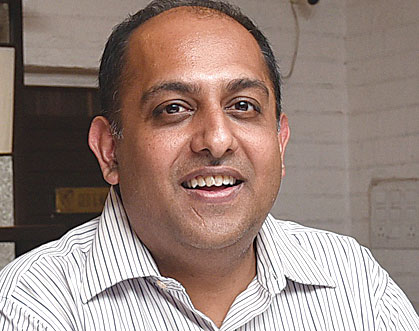Critically acclaimed British satirist, host of the international hit podcast The Bugle, cricket commentator and broadcaster Andy Zaltzman was at CC&FC last month for a live recording for the Calcutta leg of BBC Radio 4’s Empire-ical Evidence, with homebred funnyman Anuvab Pal keeping him worthy company. Conceived to trace the rise and fall of the British Empire through colonial architecture, the BBC show, which began airing on October 10, is a blend of location and live stand-up recordings in London and Calcutta. t2 sat down with Zaltzman to catch a feel of the satirist’s pulse after the recording at CC&FC.
Satirist, author, commentator, comic — you wear multiple hats. Which hat do your wear with most pride?
I don’t really think of it as pride but I like the fact that I have many hats, rather than any one particular hat being my favourite. I like having that balance, doing stand-up, podcast, radio, political satire, cricket stuff — keeps you very stimulated and takes you to different places to do different things. I guess it does become second nature. If you have not done stand-up for a while, it takes a couple of shows to get back in the swing of it. But it has become the texture of my career in the last few years, jumping from one thing to another.
How would you define your brand of satire?
It’s a mixture of satire and nonsense with elements of surrealism in it. I don’t really think about defining it. What I really try to do is illustrate the stories that I am talking about in an entertaining and different way, from interesting angles and drawing quirky parallels.

John Oliver, who first found fame with The Daily Show, had been Zaltzman’s collaborator during their initial days Agencies

Growing up, Monty Python was one of Zaltzman’s big loves Agencies
How did Empire-ical Evidence happen? How have the Indian and British audience, in particular, taken it?
The production group with the BBC came to us and suggested it and Anuvab (Pal) and I had done stand-up shows in India six years ago and he has been on my podcast for the last 18 months or so. I knew Anuvab was very interested and well-informed about history, so I thought it would be a good partnership for the show.
It’s interesting coming here and this particular venue in Calcutta may be more well-disposed of the British legacy than other places. It’s a complicated issue and there isn’t necessarily a right or wrong answer to it and it’s an awkward topic to do comedy about really, and given that, the audiences have responded pretty well to it. The show is based on the architecture of the empire, so it’s not a direct critique of the crimes of empire or anything, so it’s slightly removed from the awkward angle of things. Maybe that could make for an interesting, but difficult, sequel to this.
You have performed in India before and are now touring the country again with your stand-up comedy. What do you think about the audience’s appetite for your brand of humour?
I have really enjoyed the shows that I have done in India. The first was in 2012 and I did a few the next couple of years. It’s always interesting to perform in a different country because you come with an outsider’s perspective and you have a different relationship with the audience, by virtue of that. I change the content in terms of context and one should have a basic level of sensitivity towards the culture of the place but apart from that, I haven’t really had to alter my content very much.
The audience at stand-up clubs generally come with an open mind anyway, so that’s good. The Indian comedy scene is quite interesting, very dynamic, quite new. It’s been interesting coming back over the years to see the evolution and the young comedians with their exciting ideas.
Tell us about your association with John Oliver...
John and I started doing stand-up in the British circuit when it was quite new and then we did a radio show together about 15 years ago. So we worked together five-six years before he did The Daily Show in America and we did double-up shows on stage. And then after a year after he went to the US, we started doing The Bugle podcast and did that together for eight years, until he no longer had time with his new HBO show (Last Week Tonight). We used to work some unhealthy hours and stayed up all night for the radio show, watching sports on the telly (TV) and writing comedy shows!
Now with mediums such as podcasts, webcasts and TV shows, what do you think about the expansion and appeal of stand-up comedy?
People realised sometime ago now that stand-up was quite cheap to make on television and could be repeated, so there was a practical element to it. And also with the Internet, things could be shared quickly and comedians could build up an audience around the world in a way it wasn’t possible before.
I started doing my podcast in 2007 and it gave great creative freedom to comedians. You can just make what you want to make and put it out there. If people liked it, it would find an audience, unlike when you would have to wait for a show to get commissioned. The problem was to be able to make a living out of that and that forced comedians to be creative and generate good, original content, which has now filtered down to television and there’s this generation of comedians who have grown up being able to do whatever they wanted on YouTube or through podcast, which then comes to TV with new, interesting ideas.

Picture: B. Halder

I’ve wanted to showcase the heritage of Calcutta and its history to a global audience. Every time India gets showcased to a world audience, it’s always Mumbai, whether it’s Slumdog Millionaire or Sacred Games. It was nice that Calcutta’s history reached out to 20 million people that listen to BBC Radio
Anuvab Pal on being a part of BBC Radio 4’s Empire-ical Evidence
How do you inspire yourself to keep developing new content and keep your audience entertained?
The Bugle podcast is a topical show dealing with the week’s news, so there’s always news stories that generate ideas. It’s always a challenge doing weekly shows and there are around 370 episodes or something. The pressure of a deadline, the enjoyment of sitting down at the start of a day with a blank sheet of paper (or on a computer), having to create something new by the end of the day is something that I love doing.
Stand-up is quite an addictive thing to do and part of doing that well is coming up with good, original content. Most comedians love what they’re doing. If you’re able to make a living by making people laugh, you’re incredibly lucky. The motivation is not really difficult.
Any favourite comedians growing up or who inspire you?
I loved Monty Python when I was a teenager, as many British comedians did, even though they have long since stopped making anything. There also used to be a series by Radio 4 called On The Hour, which was a spoof of the news and it had an amazing number of jokes in it. I hadn’t really watched a lot of stand-up before I started doing it. Stewart Lee, Mark Taylor and Robert Newman are some I love. The global scene has exploded now. I have had Alex R. Fraser on my podcast and she writes beautifully and has an interesting take — I would recommend her to your readers.











